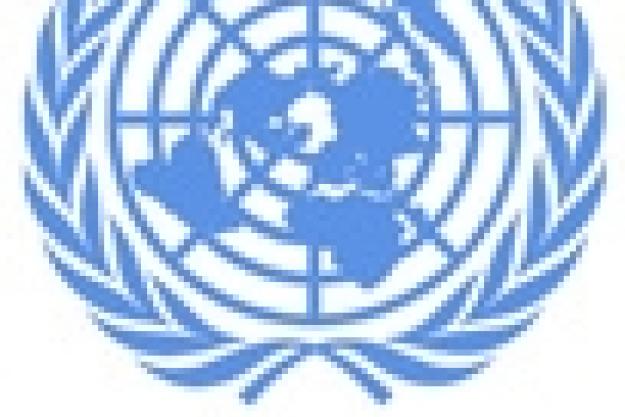
On the occasion of his visit to the United Nations (UN) on 7 October 2004, OPCW Director- General, Ambassador Rogelio Pfirter, met with H.E. Mr Kofi Annan, UN Secretary General; H.E. Mr Mihnea Ioan Motoc, Permanent Representative of Romania to the UN, Chairman of the Security Council Committee established pursuant to Resolution 1540 (2004) (Committee 1540); and Mr Javier Ruperez, Executive Director of the Counter Terrorism Executive Directorate (CTED)
Director-General Pfirter informed the Secretary General of the progress made by the OPCW in its quest for universal adherence to, and full and effective implementation of, the Chemical Weapons Convention (CWC), including the progress in the process of destruction of declared chemical weapons. Referring to the cooperation with the United Nations, the Director-General expressed the intention to build closer links with the UN and its specialised agencies and regional organisations. Secretary General Kofi Annan expressed his satisfaction with regard to the on-going cooperation between the OPCW and the UN, in particular through the Department for Disarmament Affairs, and reaffirmed UN’s strong support for the Chemical Weapons Convention and the OPCW. The Secretary-General underscored the need to strengthen the cooperation between the OPCW, and the special committees set up by the Security Council dealing with matters related to non-proliferation of weapons of mass destruction such as the Counter Terrorism Committee (CTC) and the Committee 1540. The Secretary General expressed his intention to visit the OPCW on the occasion of his next visit to the Netherlands.
Ambassador Motoc and Director-General Pfirter discussed the significance of United Nations’ Security Council Resolution 1540 (2004). They coincided on the fact that the improvements in the legislative and administrative measures to implement the CWC are occurring in parallel to the complementary requirements laid down by the Security Council and binding upon all members of the United Nations, including States not Party to the CWC, pursuant to Resolution 1540. The important role that could be played by the OPCW in support of this landmark decision was consequently evoked. Director-General Pfirter expressed Technical Secretariat’s readiness to provide technical assistance as it might be required by Committee 1540.
Mr Ruperez and the Director-General had an exchange of views regarding the activities of the recently established CTED. Mr Ruperez underscored the need to further develop the cooperation between the CTED and the Technical Secretariat of the OPCW in light of Security Council Resolution 1535 (2004) promoting a closer cooperation and coordination with International, Regional and Sub-regional organisations. Director-General Pfirter expressed the readiness to cooperate with the CTED and stated that the OPCW was ready to play its role in line with relevant UN SC Resolutions, and under the terms of the decision adopted by the OPCW Executive Council with regard to the OPCW’s contribution to global anti-terrorist efforts.
47/2004
